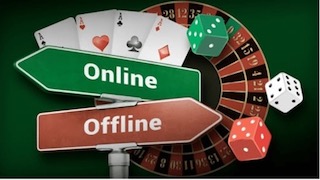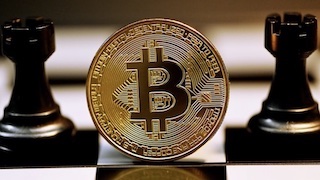Oct 21 (News On Japan) - Japan's relationship with gambling is complex and unique, offering a fascinating glimpse into the country's culture and legal system.
This article explores ten intriguing facts about gambling in Japan, shedding light on its current state and future prospects.
Legal Status of Gambling in Japan
Japan has a general prohibition on gambling, with a few notable exceptions. The country's strict anti-gambling laws have been in place for decades, reflecting a cautious approach to games of chance.
For more detailed information about online casinos and gambling in Japan, visit https://www.casinoonline.jp/.
Exceptions to the Gambling Ban
Despite the overall prohibition, certain forms of gambling are legally permitted in Japan:
1. Pachinko2. Sports betting (horse racing, boat racing, bicycle racing, and motorboat racing)
3. Lottery (Takarakuji)
These exceptions have created a unique gambling landscape in Japan, where traditional casino games are largely absent from the legal market.
Pachinko: Japan's Gambling Loophole
Pachinko, a pinball-like game, stands as Japan's most popular form of gambling, operating in a legal grey area. Here's how it works:
1. Players purchase small metal balls to use in the game.2. The balls are shot into the machine, bouncing through a maze of pins.
3. If the balls land in certain pockets, the player wins more balls.
The "Prize Exchange" System
To circumvent gambling laws, Pachinko parlors use a clever workaround:
1. Winners exchange their balls for prizes at the parlor.2. These prizes can then be sold for cash at nearby exchange centers.
3. The exchange centers are typically owned by the same company as the Pachinko parlor but operate as separate entities.
This system allows Pachinko to operate in a quasi-legal manner, despite its similarities to traditional gambling.
Economic Impact of Pachinko
Pachinko has a significant economic footprint in Japan:
Annual revenue: ¥20 trillion (approximately $185 billion)
Number of Pachinko parlors: Over 10,000
Employment: Roughly 300,000 people
These figures underscore the importance of Pachinko to Japan's economy and entertainment industry.
Online Gambling in Japan
The legal status of online gambling in Japan is somewhat ambiguous. While there are no specific laws addressing online gambling, it generally falls under the country's overall gambling prohibition.
Growth of the Online Gambling Market
Despite the legal uncertainties, online gambling has seen significant growth in Japan:
- Many Japanese players access offshore betting sites.
- The online gambling market in Japan is estimated to be worth billions of yen annually.
- Mobile gambling has become increasingly popular among younger players.
Popular Offshore Betting Sites
Several international online casinos and betting sites cater to Japanese players, offering:
- Japanese language support
- Japan-friendly payment methods
- Culturally relevant games and promotions
While these sites operate in a legal grey area, they continue to attract a substantial Japanese user base.
Gambling Addiction in Japan
Gambling addiction is a growing concern in Japan, particularly given the widespread popularity of Pachinko.
Prevalence of Problem Gambling
Studies suggest that Japan has a higher rate of gambling addiction compared to many other developed countries:
- Approximately 3.6% of Japanese adults have experienced a gambling addiction.
- This rate is significantly higher than in countries like France (1.2%) and the United States (2.6%).
Support Systems for Gambling Addiction
In response to these concerns, Japan has begun to implement measures to address gambling addiction:
- Establishment of addiction treatment centers
- Public awareness campaigns
- Introduction of self-exclusion programs in Pachinko parlors
Future of Gambling in Japan
Japan is on the cusp of significant changes in its gambling landscape, with plans to introduce integrated resorts featuring casinos.
Plans for Integrated Resorts and Casinos
The Japanese government has approved the development of three integrated resorts, which will include:
- Casinos
- Hotels
- Shopping centers
- Conference facilities
These resorts are expected to boost tourism and generate substantial tax revenue for the country.
Potential Economic Impact
The introduction of integrated resorts is projected to have a significant economic impact:
- Estimated annual revenue: ¥1.75 trillion (approximately $16 billion)
- Expected job creation: 190,000 new jobs
- Increased international tourism
Interesting Statistics
Here are some fascinating statistics about gambling in Japan:
Number of Pachinko players: Approximately 9.4 million
Annual lottery sales: ¥786 billion (approximately $7.2 billion)
Horse racing revenue: ¥2.6 trillion (approximately $24 billion)
These numbers highlight the scale of Japan's existing gambling industry, even without traditional casinos.
Cultural Aspects of Gambling in Japan
Gambling in Japan is deeply intertwined with cultural and social norms:
- Pachinko is often viewed as a form of entertainment rather than gambling.
- Sports betting on traditional Japanese races (horse, boat, bicycle) is seen as more socially acceptable than other forms of gambling.
- There's a growing generational divide in attitudes towards gambling, with younger Japanese more open to casino-style games.
Conclusion
Japan's gambling landscape is unique, blending strict regulations with popular forms of quasi-legal gambling like Pachinko. As the country moves towards introducing integrated resorts and casinos, it faces the challenge of balancing economic opportunities with concerns about addiction and social impact. The future of gambling in Japan promises to be as fascinating and complex as its past.















